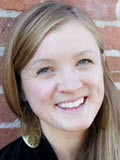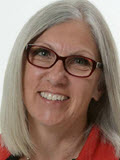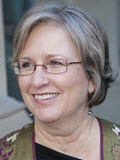Each month a cross section of prominent ASCE members shares insights on important industry topics in the ASCE News Civil Engineering Roundtable.
For ASCE News’ Women in Civil Engineering series, the roundtable will focus on issues affecting women in the profession.
This week, our panel gets a bit more personal and shares different hurdles each has faced throughout their careers.
What has been your single biggest challenge as a woman in the civil engineering profession?

Avery Bang
A.M.ASCE, president and CEO, Bridges to Prosperity
“Not having as many people that I can point to and say, ‘That’s who I want to be in 40 years.’ There certainly are many female role models in the sector, but I think young women have to search a bit harder to find those folks.”

Marsha Anderson Bomar
AICP, ENV SP, F.ASCE, ASCE Technical Region director, executive director, Gateway85, Norcross, GA
“Not being seen as a woman in the profession but rather as a professional who incidentally is a woman. I strove to be heard as a knowledgeable professional and recognized that I was visible because I was a woman but did not want that to be the driver for my acceptance or lack thereof. There is sometimes a bias about women being able to do the job as well as their male counterparts. Being seen as a woman first plays into that bias.”

Kathy Caldwell
P.E., F.SEI, Pres.11.ASCE, president, Caldwell, Cook and Associates, Gainesville, FL
“The challenges and opportunities I have experienced in this great profession have made me the person and engineer I am, and I am grateful for them. The biggest obstacles are ‘difficult people,’ but that is gender neutral!”

Veronica O. Davis
P.E., M.ASCE, co-founder / principal planning manager, Nspiregreen, Washington, DC
“The biggest single challenge as a woman in the profession is a lack of women in leadership. When I was a junior engineer at a consulting firm, there were only two women out of over 180 vice presidents. Part of the reason I started my own company is that I did not see a path to leadership without working three times as hard as my male counterparts.”

Maria Lehman
P.E., M.ASCE, director of strategic initiatives, Ecology & Environment Inc., Orchard Park, NY
“Having to speak up all the time to be noticed. While most of my bosses during my career were supportive of women, they were also myopic to women’s value and achievements. Most women are not driven by ego and assume that good work alone will get you noticed, promoted, and advanced. That is not true in many cases, so we need to work to get our opinions across, don’t allow ourselves to be over-talked and keep up our tenacity. It can be mentally exhausting, but at the end of the day, if you don’t stick up for yourself, who will? As a woman advances in her career, she must also be very mindful to mentor and offer opportunities to women coming up in the profession. That will change the face of the profession.”

Diane M. Linderman
P.E., ENV SP, M.ASCE, managing director, VHB, Richmond, VA
“I couldn’t come up with one! We all face challenges in our careers – females and males. It is how we meet those challenges that defines our success. When I started my career almost 40 years ago, it was a very male-dominated profession. I never let that influence me. I was confident as I sat in the room. Were there times when I felt left out or not included in the ‘good old boy’ network? Sure, I did. But I didn’t let that define me or stop me from being a part of the solution. What is important is to earn the respect of your peers and those in decision-making positions.”

Rebecca Luman
P.E., M.ASCE, Healthy Tweaks LLC, Houston
“The single biggest challenge as a woman in the profession is maintaining the balance between retaining a full-time position as an engineer and advancing my career, and being a nurturing mother/wife, ensuring my family is not neglected.
“I would love to see ASCE collect and understand statistics behind how many women stay in civil engineering and for how long after graduation and/or starting a family. Using this information, we could develop a network of engineering/consulting firms that mentor women, helping them realize their potential as they transition through the various phases of life, encouraging more women to stay in the profession.”

Denise Nelson
P.E., ENV SP, M.ASCE, environmental engineer, The Berkley Group, Richmond, VA
“The family/work balance is an ongoing challenge. While men face this, too, there are substantial differences. Most obviously, being pregnant on a job that may require field work or any task requiring personal protective equipment can be risky, at worst, or tiring, at best. There are still the common misperceptions that women taking maternity leave are a burden to the company or project and that women won’t return to their careers when maternity leave ends.
“I would love to see more supportive work environments for professionals with children. I’ve found that having children has helped me learn to be more flexible, improvisational, and creative in working with people and solving problems. It’s also kept me grounded – the decisions we make in civil engineering today are to serve future generations.”

Jennifer Sloan Ziegler
Ph.D., P.E., M.ASCE, project engineer, Waggoner Engineering, Jackson, MS
“Work-life balance. I feel, justified or not, as if I have to put in more hours, be more active in professional extracurriculars, and have more certifications and licenses than my male colleagues in order to be taken seriously and/or presented with the same opportunities. It is frustrating, but my husband and I make it work. It is, however, one of the main reasons I have not had children yet – I cannot quite figure out how to add children to my already busy schedule without dropping something else.”


